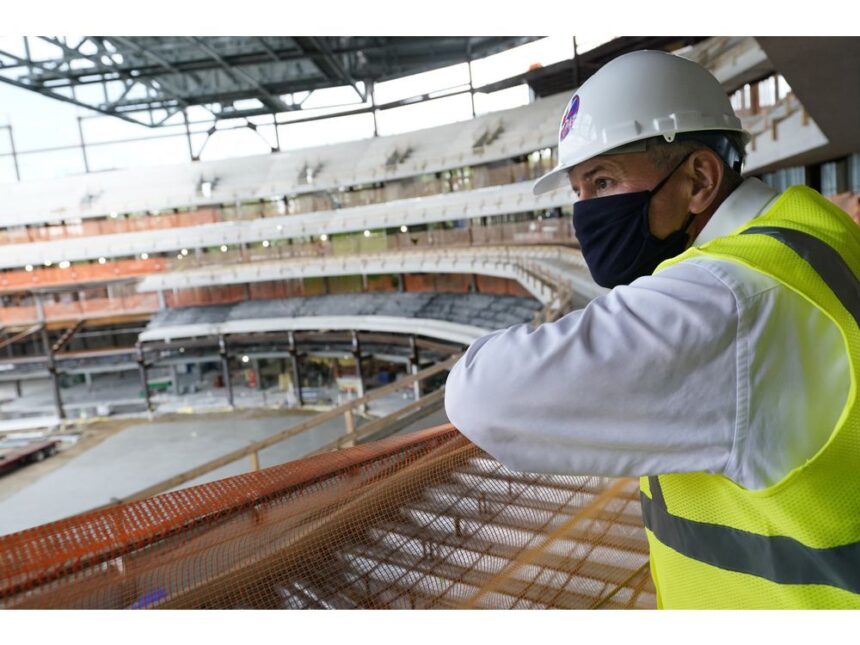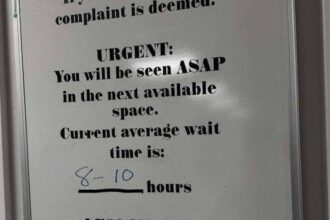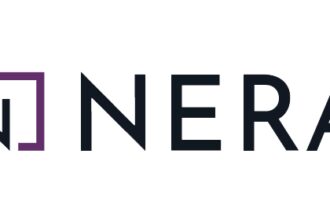In a stunning development that has sent shockwaves through the sports and entertainment industry, Tim Leiweke, the former president and CEO of Maple Leaf Sports & Entertainment (MLSE), has been indicted in the United States as part of an alleged arena bid-rigging scheme. The indictment, unsealed Thursday, marks a dramatic turn for one of North America’s most influential sports executives who once commanded Toronto’s premier sports empire.
Federal prosecutors allege that Leiweke, along with other executives from Oak View Group, a facility development and investment company he co-founded after leaving MLSE in 2015, participated in a conspiracy to manipulate competitive bidding processes for arena management contracts across multiple U.S. cities.
“The allegations outline a sophisticated effort to undermine fair competition in public contracting,” said U.S. Attorney Martin Coleman in a statement accompanying the indictment. “When executives collude to divide markets and fix bidding processes, taxpayers and communities ultimately pay the price.”
According to court documents, the scheme allegedly involved coordinating with competitors to determine in advance which company would win certain municipal contracts for arena management, effectively nullifying the competitive bidding process designed to secure the best value for public funds. The indictment covers activities alleged to have occurred between 2016 and 2022, affecting contracts valued at over $500 million collectively.
Leiweke’s tenure at MLSE from 2013 to 2015 saw him oversee Toronto’s major sports franchises including the Maple Leafs, Raptors, Toronto FC, and the Argonauts. His ambitious vision transformed Toronto’s sporting landscape, including the Raptors’ “We The North” rebranding that preceded their eventual NBA championship.
The Oak View Group, which Leiweke founded with music industry executive Irving Azoff, has rapidly become a major player in arena development and management. The company has been involved in high-profile projects including Climate Pledge Arena in Seattle and the new UBS Arena for the New York Islanders.
Legal experts following the case note the severity of the charges. “Bid-rigging is taken extremely seriously by federal prosecutors because it undermines the entire concept of fair competition in public procurement,” said Catherine Williams, a former federal prosecutor now specializing in white-collar crime. “These charges could potentially carry significant prison terms if convictions are secured.”
The indictment has immediate implications for ongoing arena projects involving Oak View Group, with several municipalities already announcing reviews of their contracts with the company. Financial analysts suggest the legal troubles could impact the company’s ability to secure financing for future projects.
Oak View Group released a statement defending their business practices: “We categorically deny these allegations and will vigorously defend against them. Our company has always operated with integrity and in compliance with all applicable laws and regulations.”
Industry observers note the case highlights the intense competition for lucrative arena management contracts, which often involve not just venue operations but also concessions, ticketing, and promotional rights worth tens of millions annually.
“The sports facility management industry has become increasingly concentrated among a few major players,” explains sports economist Dr. Jennifer Harris. “When billions in public and private investment are at stake, the pressure to secure these contracts can be enormous.”
For Leiweke, whose career includes leadership roles with AEG, the Los Angeles Kings, and the Los Angeles Galaxy before his Toronto stint, the indictment represents a stunning reversal of fortune. He faces charges including conspiracy to restrain trade, wire fraud, and honest services fraud.
As this legal drama unfolds across international borders, a question emerges that extends beyond Leiweke’s personal fate: In an era when public-private partnerships dominate sports facility development, who truly ensures that the competitive processes designed to protect public interests remain genuinely competitive?










